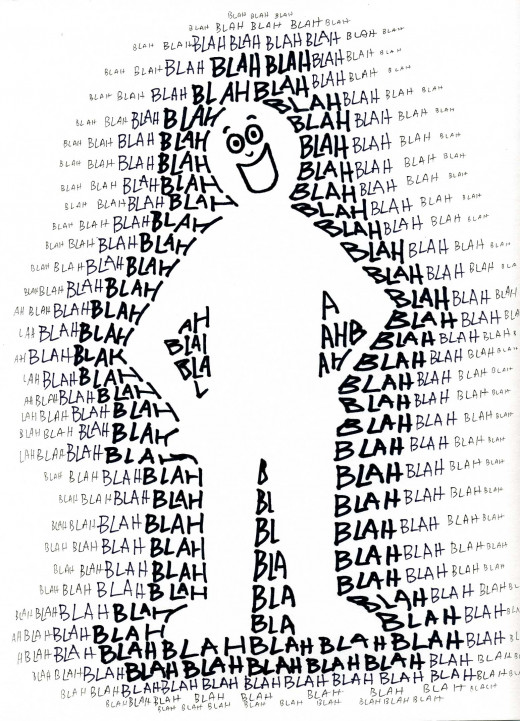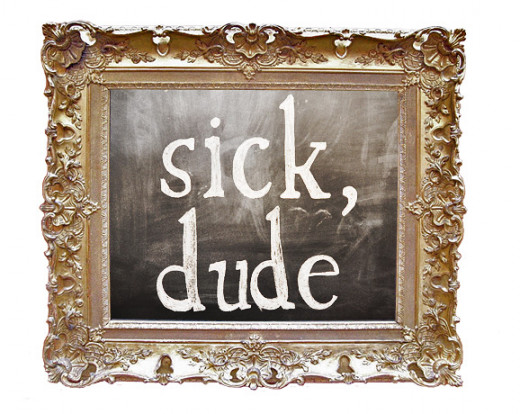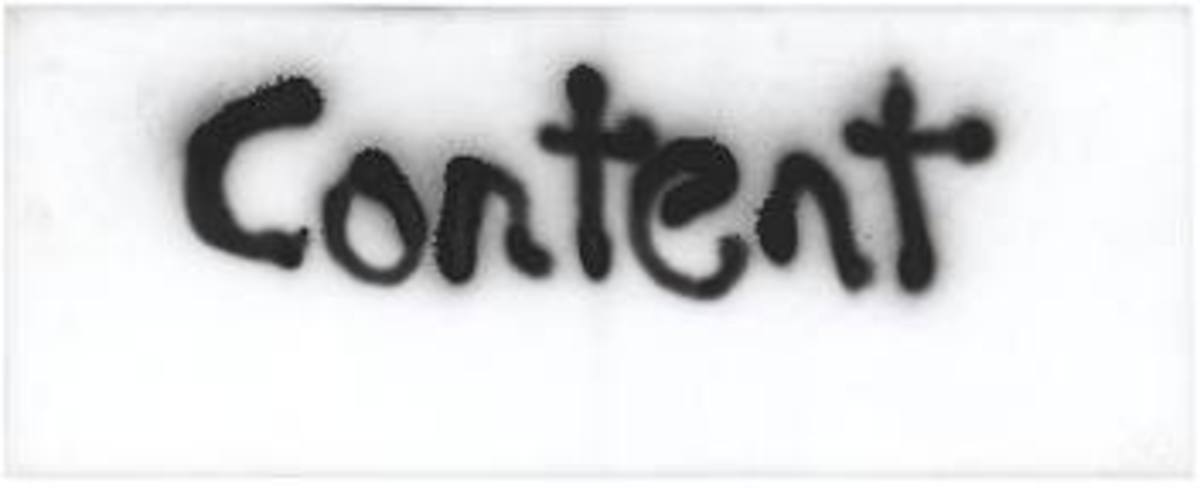An Internet Comedy Writer's Biggest Mistakes
The Problems
Internet comedy, for all of it's crudeness, isn't all "dick and fart jokes". A lot of nuance and sophistication are at play from time to time. Though, admittedly, there's nothing like a good dick and fart joke--if executed right.
Still, the problem a lot of would be comedy writers tend to get mired in, isn't the material...it's the construct and execution.
It seems that, despite being funny and the ability to construct jokes comes naturally to some when spoken aloud and "live". Yet, die when conveyed with the written word. It just "misses the mark". Why is that?
Though, there are some telltale "wrongs" that muck up a lot of work created by writers. Overall, correcting these are simply a matter of taking the time out to view content from a different perspective. Hopefully, avoiding the frustration of doing it horrendously wrong.
Some of the more common problems when comedy is put to paper are:
- Slang
- Getting A Flow
- Readability
- Losing the audience
- Rambling

Rambling
The first point last, largely because it leads handily into the other points. Plus,going against the grain is always fun...unless it chafes.
Rambling is the art of using a million words (or what sounds and reads like a million) and taking the longest, wordiest route to eventually, possibly hit your point (or punch line), when you only need a few...words that is. (<---rambling).
The problem with rambling is that it obliterates any sense of timing for the reader. Whatever comedic idea being setting up is diluted. Interest in the subject is killed faster than a fart at a perfume counter.
Writers tend to ramble in an effort to bridge spoken comedy with writing. It can also stem from a stoic refusal to edit and sometimes...an inability to write with less wording.
A quick example might be:
"I lived in this place down in Florida when I was growing up. There was this guy that used to come around with an ice cream truck. He was kinda tall, had a beard and talked to all the kids in this real high pitched voice. Anyway, he was selling ice cream one day and we noticed that he only took ice cream out of this one white cooler. So, I asked him why he only used that one cooler and he said something about it being a bathroom. Yeah, something like that."
A less wordy version:
When I was little, there was an ice cream man. He'd stop at the park and we'd pick out whatever and he'd always get it from the same cooler, even though there were two in the truck. Always.
One day I had to ask him, "What's wrong with the other cooler?" His answer, "That one's for crappin' "
Cutting the rambling gets to your punchline quicker. Taking a circuitous route to the punchline aggravates readers and loses the audience. Never be afraid to cut your words out. Well, wait a minute, never be afraid to cut the wrong words out.
Or Pick The Right Words
Getting Your Flow Right
As sensei Seinfeld so eloquently put it, comedy writing can take a long time.
Working everything (the wording, timing, word count, etc.) until it's exactly right requires patience and the ability to edit confidently.
The challenge of writing comedy online, however, is that the Internet has no patience. Everything demands satisfaction...yesterday, if not sooner. Little time can be wasted on trivialities like "honing skills" and "attention to detail", or so it seems.
The Internet's ADHD driven deadlines can seem like hammer ready to drop. It's not surprising that one feels compelled to cut corners. The first corner being "editing" or "shutting the hell up a little more". How can anyone cope under all that pressure? Other than to give in to shortcuts, negating quality, right?
WRONG!
Wow, sorry about...the caps. Wrong!
A fantastic way to not only offset the pressure, but actually get faster at it is to type (or in Seinfeld's case, write) out the words first and practice them. By verbalizing out loud you can hear the missteps, misfires and flaccid delivery.
It eliminates the guess work in what you're writing. Eventually, massaging it into a gooey, tar like putty perfect for slathering on audiences who need a laugh.
A piece's flow is directly effected by the quantity and quality of wordage used. Jokes have to have achieve a good flow.
It needs to pop.
This guy is worth watching to. So, watch!

Slang
Using slang, in writing, can be a bad thing. Often, it's used to try and seem relevant and up to date. Mostly it's used to cover bad writing.
The worst possible form slang can take happens when its converted into a typed word. Most often it's doled out in the form of poorly lettered real words. "Because" turns into "Cause" which, in turn becomes "Cuz".
As with most ill spelled things, it's often misconstrued as poorly written due to diminished intellect...on the writer's part. It's not true, most of the time, it just seems that way. Can you blame the reader for thinking otherwise?
Slang isn't readily understood by everyone either. Sometimes, the true nature and meaning of the slang words are misinterpreted and misunderstood by the audience. In cases were slang is specific to a region or neighborhood, even more so. The fact of the matter is, slang, if used in great quantity is seen as a poor writer's misspelled words, poorly translated ideas and gibberish phrasing.
That isn't to say that it can never be used. If applied in a way, relative to the material being performed or written, it can be quite successful.
Just ask any performer on the Blue Collar Comedy Tour about "Y'all".
A quick way to find out if slang is putting your writing off is, again, to read your piece out loud. Even if you mutter it to yourself, the words should flow naturally. That is to say, that anyone listening to you speak would understand it plainly and not need an interpreter or involved explanation.
Remembering that the Internet is a worldwide community, for the most part, can keep a writer on the track of slang avoidance. The compulsion, like any good addiction, to include some off hand slang is a hard habit to kick.
The way around that? Figure out what you're using the slang to try and say then, use a plain language equivalent to get the job done instead. It's far more rewarding for the reader.
It garners a higher readership and is more easily shared.

Readability
At times, comedy writing is crude. Crudity that doesn't readily carry over into the writing portion of content. Readers, on the whole, like to understand what they're reading with as little effort as possible. T
This doesn't infer that they're stupid, just prone to recognizing "total crap".
When an article, comedy or otherwise, is written in a "half assed", slip shod way, readers pick up on it. Pretty quickly too.
They'll turn on you.
A good fix, that doesn't require a follow up trip to a university for an English degree is...read well written material. Which is to say, actually. read. good. material. Start with something easy; like a magazine and go from there.
Try and parse what makes, what you're reading, so easy to follow. Often, it's a little as applying simple grammar to your piece to lend it a conversational "flow". You don't have to be Shakespeare, but your writing shouldn't be gibberish either.
What sets a reader against a writer is, in fact, the disrespect that comes from a written piece with low "readability", clunky "flow" or talking down to the audience.
Avoid this by...again...repeated theme ahead read what you've written aloud to yourself. You'll thank yourself later.

Losing your audience
For every audience building technique (up to and including hostage taking) there are a hundred more...lose the audience. I should know...I've done them all.
Rambling, inconsistent writing, poor subject matter and wording are all documented ways to send readers scrambling other, funnier writers. It's safe to say that without those things, reality t.v. might not exist. It's a cruel world.
The audience response makes or breaks a fan base.
A fan base being the chief propagator of a comedy writer's (internet or otherwise) ambition for money, fame, power and glory. The audience can be the key to acceptance into the upper echelons of the internet comedy writing (should there be one). There have been many occasions were a writer has gotten paid gigs and built careers based on word of mouth from his or her own fan base. It can be done.
Building internet readership is a chore, no doubt, but with consistent, concise, funny, well written comedy, it is achievable.
The best way to lose an audience is to do exactly none of those things.

And...
There you have it; a quick and ugly way to improve your comedy online. It's not a fix-all by any stretch but, its a good start.
Should you choose the dark, loney and ill lit path of internet comedy writing, you might find a rewarding experience ahead of you. Though, let's face it, the internet being what it is, with a little finesse you're likely to find yourself a multi-millionaire, bathing yourself in champagne, emeralds, and tigers blood, ordering copious amounts of $100 bills just to wipe your puppies butt with.
That's according to every self help ad I've ever seen, of course.
One can dream.








